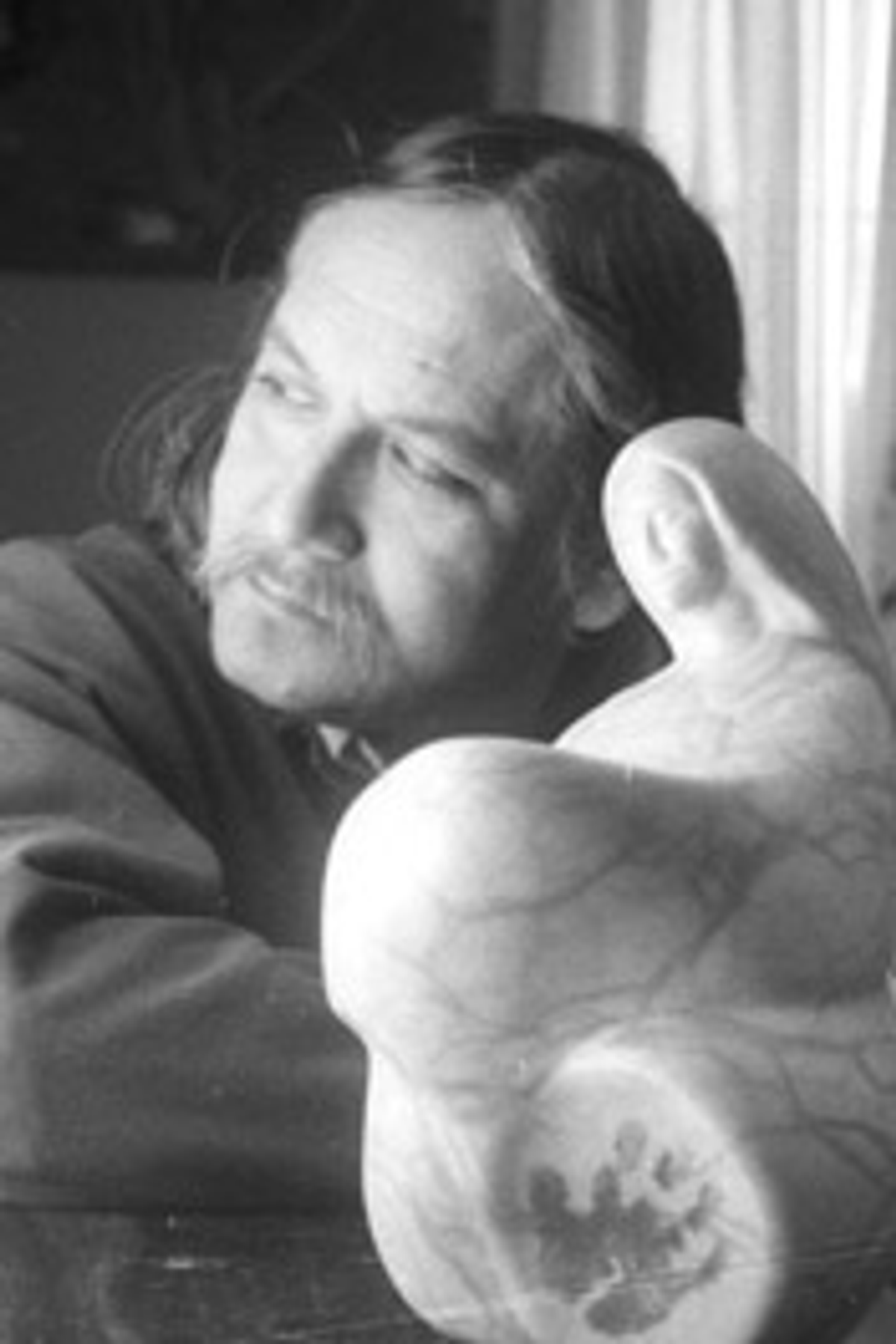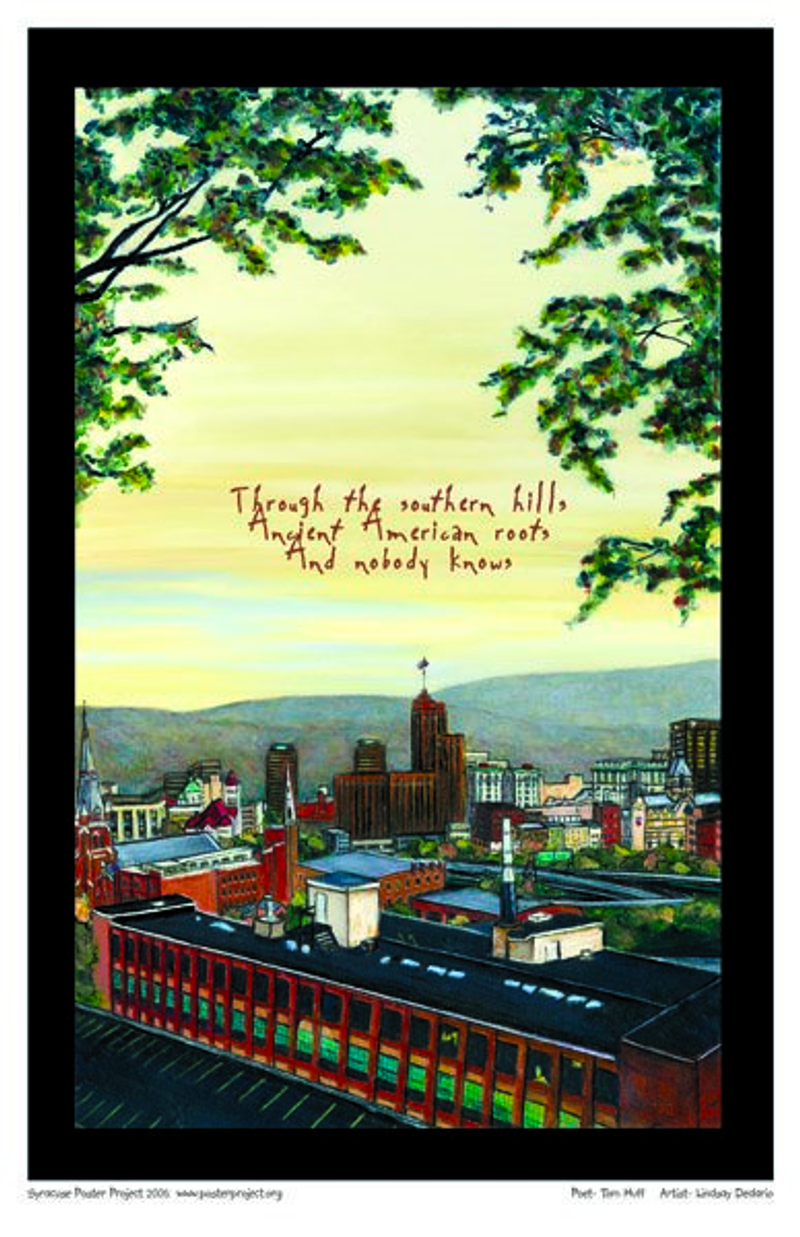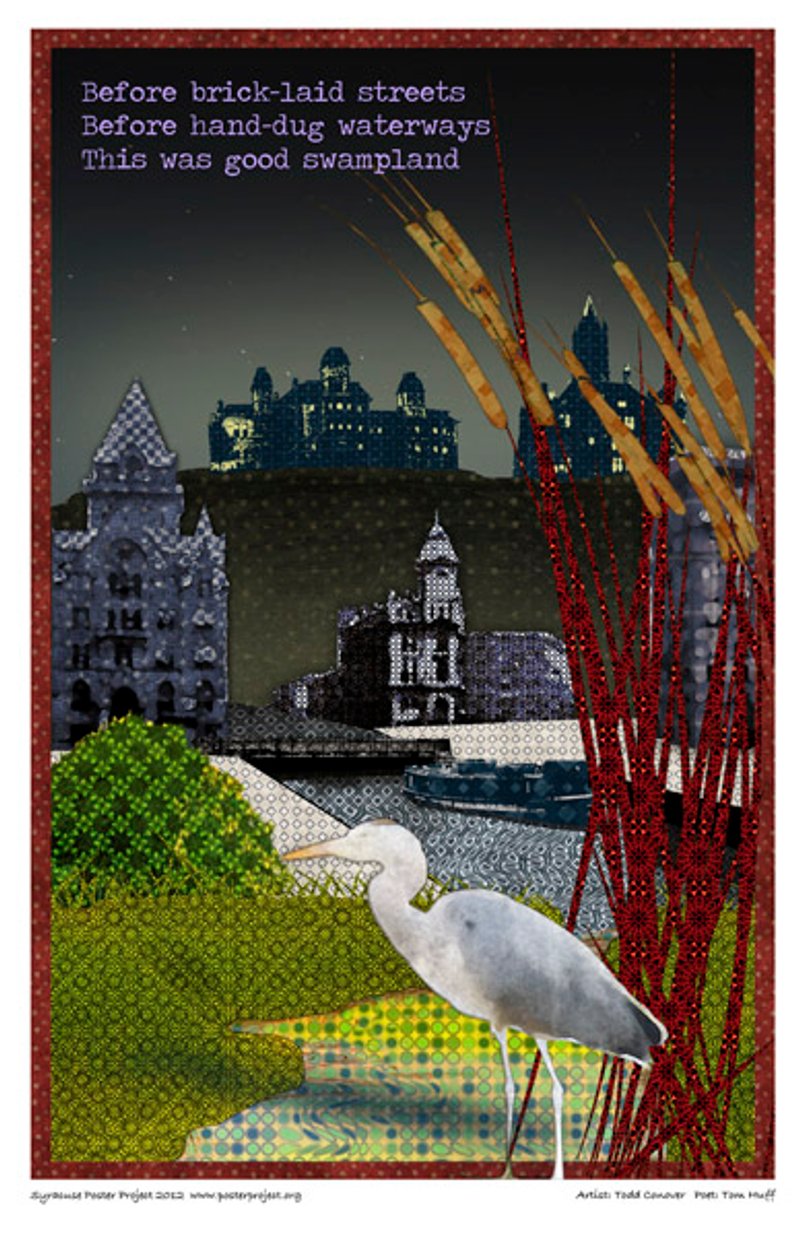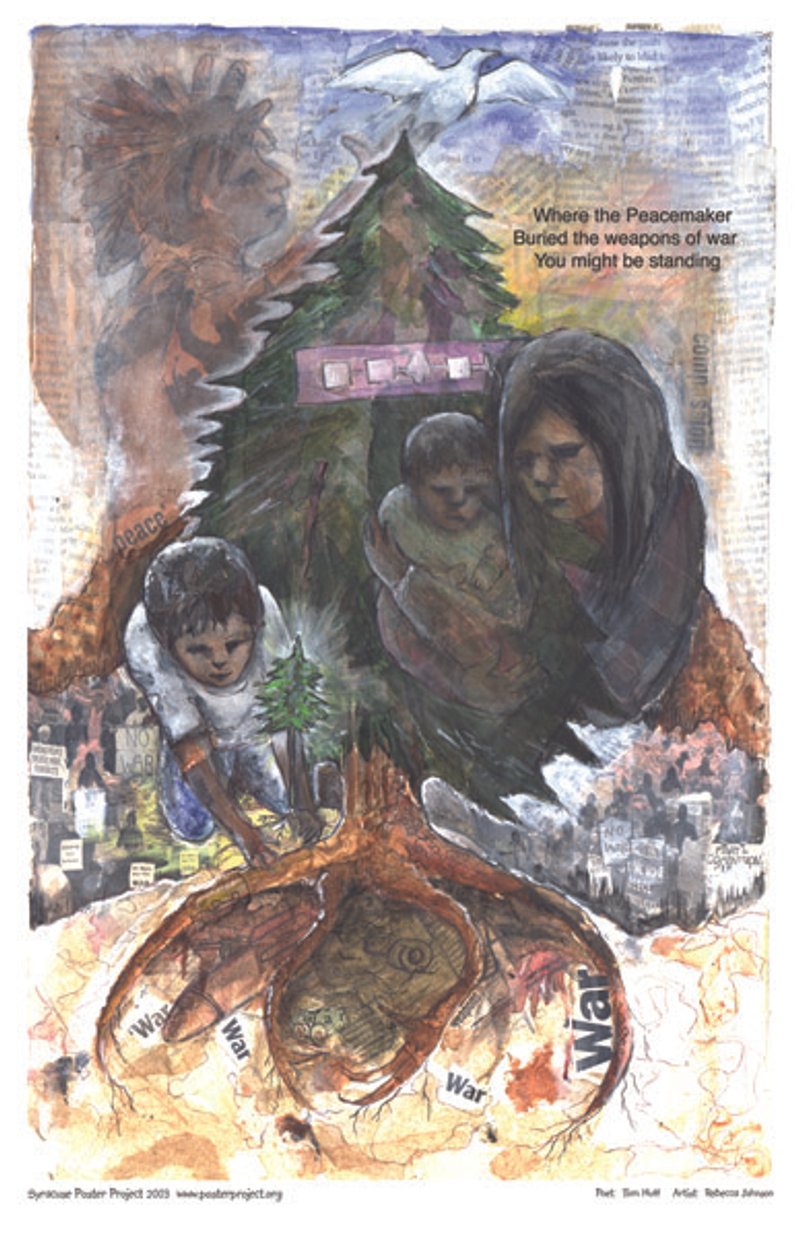
Tom Huff
contributor to 3 posters

Poet
When I give talks, or do stone carving workshops, I'll ask people if they know of the Onondaga. I'm usually surprised at how many people don't know, or don't care.
Or they'll be like: “Yeah, I know there are Indians over there, but I don't know what kind.” They don't know that Onondaga is the capital of the Iroquois Confederacy, or that Iroquois government influenced American government—that we gave root to American democracy. And this surprises me, because New York is full of Iroquois, from Lake Erie, through the St. Laurence Seaway, all the way to Albany. People aren't taught that, but they should be.
To understand who we are would eliminate stereotypes. The outside world would gain an understanding. And that would be better for all of us.
Poet
This is not the most creative haiku; it is more of a statement. Sometimes I write short poems that are actually sentences or paragraphs, and then I arrange them to look like a poem. Poem forms. The Syracuse Poster Project has inspired me to continue writing more and the haiku is a tricky, but enjoyable challenge. In the future, I hope to be able to publicly read my poetry and want to get involved with the downtown writers workshop on Montgomery Street, to continue learning more.

Poet
I was thinking of a time before the city, before the downtown, going back to the original Haudenosaunee, our people. I wanted to juxtapose that with the present, so that people on the street might think, where am I standing? What happened here? Who was the peacemaker?
He was the one who worked to bring together the original five nations (of the Six Nations of the Iroquois Confederacy) that were living in this area now known as New York State. I don't know if there has ever been specified a place where we buried the weapons of war, but to my knowledge, it was done here, in Onondaga, by the lake, or near the lake.